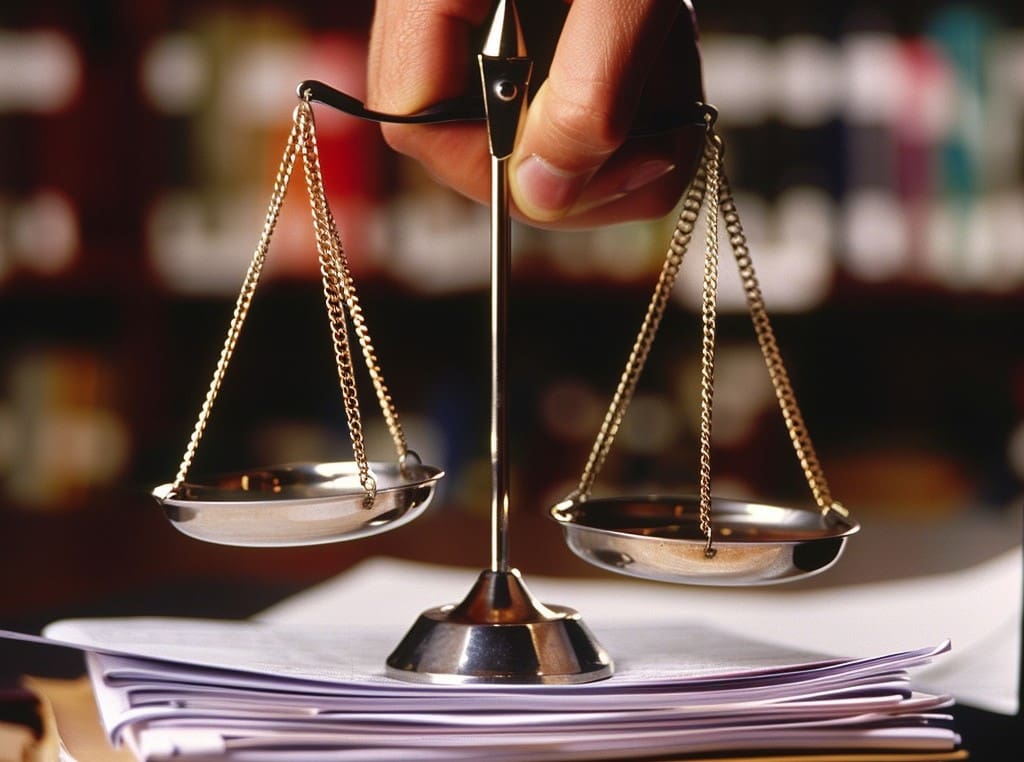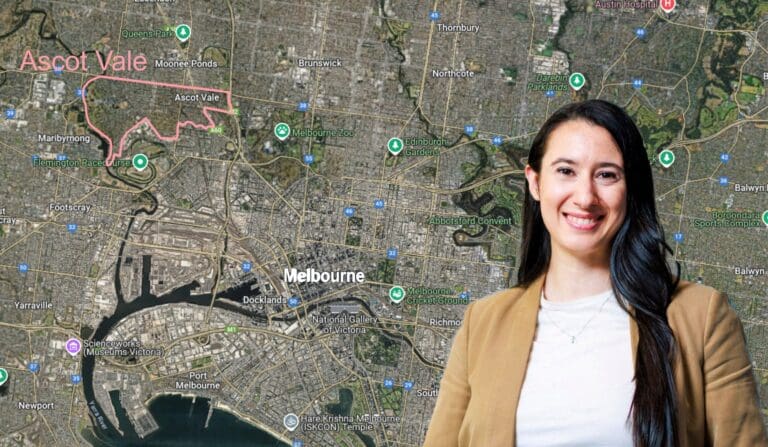In less than 3 minutes, learn about the roles and distinctions between surveyors and conveyancers in the real estate industry. Surveyors are responsible for assessing the physical aspects of a property, such as boundaries, value, and condition. Conveyancers handle the legal side, confirming all documents and transactions comply with the law. You will discover the specific duties of each professional, their qualifications, and how they collaborate during property transfers.
Surveyor vs Conveyancer: Key Differences Explained

What Is a Surveyor?
A surveyor is a professional responsible for assessing and documenting the various characteristics of land and real estate properties. They provide services to determine property value and boundary demarcation and conduct property inspections to confirm compliance with land deeds, property rights, and building codes.
Duties of a Surveyor:
- Surveyors are professionals who have completed relevant educational programs and obtained the necessary licenses or certifications.
- Their tasks include conducting land and building surveys, defining property boundaries, evaluating property values, and providing expert testimony in legal disputes.
- They perform engineering or specialised surveys as needed.
What Is a Conveyancer?
A conveyancer is a legal professional responsible for overseeing the legal and administrative aspects of transferring property ownership from the seller to the buyer. They guarantee all legal documents related to the property transfer are accurately completed and filed and the conveyancing process adheres to the law, regulations, and industry best practices.
Duties of a Conveyancer:
- Conveyancers may be lawyers or hold specialised qualifications in conveyancing, with training requirements varying by jurisdiction.
- Their responsibilities encompass conducting legal searches such as property and title searches, identifying any property-related debts or restrictions, and confirming all necessary information searches are completed for property registration.
- Additionally, conveyancers prepare all legal documents accurately to facilitate successful property transfers, including overseeing the signing, stamping, and witnessing of documents in compliance with legal requirements.
- They assist in drafting property sale contracts and title transfers and guiding property ownership rights and restrictions throughout the transfer process.
- Conveyancers are expected to be readily available to address inquiries and offer support during property transactions.
3 Roles and Responsibilities of a Surveyor
The roles and responsibilities of a surveyor include:
- Performing property surveys
- Identifying and verifying property boundaries
- Assessing property value

Property Surveys
Property surveys involve detailed investigations and inspections of land or real estate properties to determine measurements, characteristics, and conditions. Surveyors conduct property surveys using field survey tools like GPS devices, total stations, and lasers to measure distances, elevations, and property boundaries.
The measurements taken by surveyors are recorded as data points and processed into maps and reports that describe the property’s boundaries and characteristics in detail. Surveys are irreplaceable in legal applications, property development, and confirmations that structures comply with regulatory parameters. Surveyors conclude the survey with a survey report that outlines the property’s layout and presents any other relevant findings.
Property Boundaries Identification
Surveyors identify property boundaries by marking and verifying the exact limits of the property for clear recording and understanding. They utilise physical markers, GPS technology, and land records to establish and confirm boundaries, which may consist of boundary stones, fences, or buried pins.
Clear property boundaries prevent legal disputes between neighbours. If there is a boundary dispute, a surveyor offers expert testimony and evidence to assist in resolving the conflict, as such disputes lead to costly litigation and encroachments on property rights.
Property Value Assessment
Property valuation is the process of estimating the market worth of a piece of land or real estate property by considering factors such as location, condition, and market trends. Surveyors are trained to assess all the factors that influence a property’s value. They analyse details such as the property size, amenities quality and availability, neighbourhood facilities, and recent sale prices in the area to create precise valuation reports.
Expert Advice
One of the most important duties of surveyors is to provide expert advice to clients, helping them resolve complex property and land matters by offering knowledgeable and professional opinions. Surveyors offer advice across various areas, ranging from legal to property development, providing critical guidance on complex planning and zoning laws and regulations to confirm client compliance.
15 Roles and Responsibilities of a Conveyancer

The roles and responsibilities of a conveyancer include:
Title Verification
Confirming property ownership is one of the most critical steps in any transaction. Hidden claims, such as unpaid mortgages or liens, create unnecessary stress and financial risk. Reviewing ownership records prevents problems and protects your purchase.
Legal Restriction Analysis
Zoning laws, easements, and heritage overlays impose limitations that do not align with your plans. Without identifying issues, you will face restrictions on renovations or use of the property. A detailed analysis highlights all potential barriers, saving you time and money.
Contract Review and Finalization
Errors, vague terms, or unfair clauses in contracts can lead to disputes or financial loss. Every section of the agreement is reviewed and explained so you understand exactly what you are agreeing to before signing. Any issues are addressed promptly, putting your interests first.
Ownership Transfer Process
Finalising the legal transfer of property requires precision. Missing or incorrect steps lead to delays or even invalidation of the sale. Preparing and submitting all necessary documents correctly secures your ownership without complications.
Financial Obligation Management
Calculating settlement amounts, taxes, and fees accurately avoids disputes or penalties. Proper review of financial details guarantees that you only pay what you owe, avoiding unpleasant surprises at settlement.
Liability Discovery
Discovering unpaid rates or land taxes tied to a property is essential. Without identifying debts, you risk inheriting financial obligations from the previous owner. An exhaustive search brings any hidden liabilities to light.
Settlement Oversight
Settlement requires seamless coordination of funds, documents, and deadlines. Mistakes at this stage can result in penalties or even cancellation of the transaction. Every aspect is managed to avoid unnecessary delays or financial losses.
Legal Guidance
Contracts and property documents are filled with unfamiliar terms and legal jargon. Clear explanations help you fully understand your rights and responsibilities so you remain confident throughout the process.
Fund Security
Managing deposits and payments during a property transaction requires strict oversight. This process guarantees that all funds are handled securely and reach the right parties without error.
Legal Compliance
Every step in a property transaction must align with state and local laws. Failing to follow legal requirements leads to fines or invalidation of the sale. Every document and action is completed in full compliance to protect you from unnecessary risks.
Client Communication
Ongoing updates keep you fully informed about progress. Whether addressing questions or resolving concerns, clear communication reduces stress and gives you control over the process.
Problem Resolution
Unexpected title defects or disputes over property boundaries derail transactions. Acting quickly to resolve issues prevents delays and protects your investment.
Document Filing
Filing legal documents requires accuracy and attention to detail. Any errors or missed deadlines could delay the sale or incur fines. Proper submission of every document keeps your transaction on track.
Professional Coordination
Property transactions involve surveyors, agents, and lenders. Coordination between parties is critical to avoid confusion or setbacks. Clear communication guarantees all parties work together effectively to complete your purchase.
Client Advocacy
Throughout the process, your interests are prioritised. Risks are addressed, and disputes are prevented. Whether it involves handling difficult negotiations or navigating a complex contract, every step is taken to protect you and achieve the best outcome.
Differences Between a Surveyor and a Conveyancer
The difference between a surveyor and a conveyancer lies in their distinct roles in property transactions. Surveyors offer property-specific and valuation services, focusing on the physical aspects of a property, while conveyancers provide property-specific and legal services, concentrating on the legal aspects of a property transaction.

Qualifications and Training
Surveyors and conveyancers require distinct educational backgrounds and qualifications. Surveyors typically hold a bachelor’s degree in fields such as surveying, geomatics, or property evaluation. They often obtain certifications from organisations like the National Society of Professional Surveyors.
Conveyancers, by contrast, focus on property law and the legal aspects of transactions. They complete training programs or vocational courses dedicated to the conveyancing process and hold licenses or certifications from regulatory bodies such as the Council for Licensed Conveyancers. Both professions require ongoing professional development to stay up-to-date with evolving regulations and standards.
Scope of Work
The responsibilities of surveyors and conveyancers differ significantly within the real estate sector. Surveyors handle fieldwork, performing property valuations, condition assessments, and boundary identifications.
Conveyancers, on the other hand, focus on legal and administrative tasks, including drafting contracts, conducting title searches, transferring ownership, and managing financial transactions.
Involvement in Property Transactions
Surveyors take charge of assessing the physical attributes of a property during the early stages of a transaction. Their evaluations and boundary determinations provide the foundation for informed decision-making.
Conveyancers oversee the preparation, examination, and finalisation of legal documents. They confirm that all necessary paperwork complies with legal requirements, facilitating a lawful and accurate transfer of property ownership. Collaboration between surveyors and conveyancers enhances the success and efficiency of property transactions.
Legal Authority
Surveyors possess the authority to act as expert witnesses in court for disputes concerning property boundaries or valuations. Conveyancers hold the authority to draft and execute documents central to property transfers.
Final Thoughts: Deciding Between a Conveyancer and a Surveyor
Knowing when to involve a surveyor or a conveyancer depends entirely on what stage you are in the property transaction and what challenges you face.
You need a surveyor when handling physical property aspects. This includes confirming property boundaries, assessing market value, or inspecting the property for potential issues. If you plan to develop the property or are involved in a boundary dispute, their expertise in measurements and property characteristics will guide you.
A conveyancer is indispensable for managing the legal side of a property transaction. They prepare and review contracts, check title ownership, and handle all legal paperwork to transfer ownership correctly. If there are unresolved debts, restrictions, or compliance issues, they will resolve them to protect your investment and keep the transaction legal.
Surveyors focus on what you can see, while conveyancers address the unseen legal foundation. If you’re unsure which one to contact, reach out, and we’ll help you resolve your dilemma.
Frequently Asked Questions
What is the difference between a surveyor and a conveyancer?
A surveyor is a professional who specialises in assessing and measuring land and buildings, while a conveyancer is a legal professional who deals with the legal aspects of buying and selling property.
Do surveyors and conveyancers perform similar tasks?
No, surveyors and conveyancers have different roles and responsibilities. Surveyors focus on the physical aspects of the property, such as boundaries, structures, and potential hazards, while conveyancers handle the legal aspects, including title searches, contracts, and transfers of ownership.
Can I hire both a surveyor and a conveyancer for a property transaction?
Yes, it is common to hire both a surveyor and a conveyancer when buying or selling a property. Their expertise complements each other and can provide you with a comprehensive understanding of the property and its legal implications.
How do surveyors and conveyancers communicate with each other during a property transaction?
Surveyors and conveyancers communicate through written reports and documentation, as well as meetings or phone calls. They work together to resolve any issues that may arise during the transaction.
Can a surveyor act as a conveyancer?
No, a surveyor is not qualified to handle the legal aspects of a property transaction. It is important to hire a qualified and licensed conveyancer to confirm all legal requirements are met.
How do I know if I need a surveyor or a conveyancer for my property transaction?
It is best to consult with both a surveyor and a conveyancer to determine the specific needs of your property transaction. They can advise you on the necessary steps and services required for a successful transaction.
Get your quote today.
Relax knowing our experts are handling your property conveyancing.









